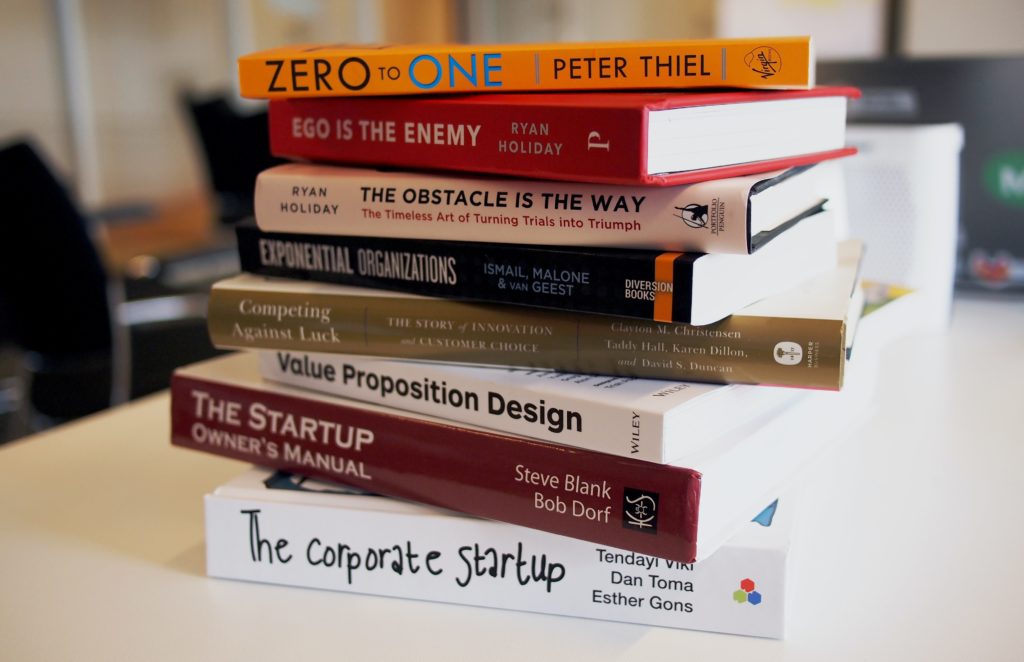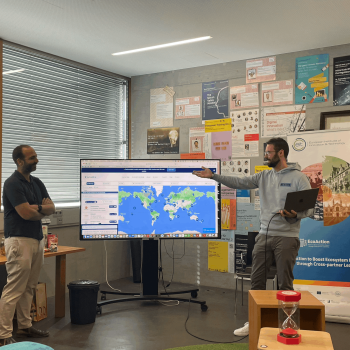At StartupBlink, we have made it our mission to evaluate Startup Ecosystems around the world, considering closely the quantity and quality of startups, which is why it is crucial for us to have a clear definition for the term.
In today’s world, the word “Startup” has entered everyday language due to hugely successful and influential technological companies. It’s a romanticized word (the story of college kids building world-changing technologies from a garage can be very inspiring), but it can also have negative connotations in a world ever more suspicious of Big Tech – are Amazon or Google still to be considered startups?
Defining “startup”
Investopedia defines a startup as “a young company” established by one entrepreneur (or a group of them) with the aim of bringing a new product or service to market, which will be unique or better than previously existing ones. At StartupBlink, we believe that it is essential we have a deep understanding of startup characteristics in order to define exactly what they are.

The 4 Key Characteristics of Startups
- Small size, big impact
Emerging startups usually begin their journey with a small team (1 to 20 employees) working in the development of a minimum viable product (MVP) or a prototype of a product, service, or platform to see whether their idea indeed offers a value proposition to users, and has the potential of profitability. Generally, it is only after this stage, that the startup can actually gather more investors, customers and thus be able to grow.
It is agreed that a basic characteristic of a startup is that it is a small business, however, being small in size does not automatically make a company a startup. The ambition to generate a big impact, scale up and grow is another characteristic of startups, critically differentiating them from traditional SMEs. In order to be able to grow fast, a startup team should be much more flexible and adjust faster to change than regular businesses, allowing them to rapidly adapt to technological advancements, an increased number of competitors in the market, and of course, failures…
- High risk of failure
“If you are not embarrassed by the first version of your product, you’ve launched too late” – Reid Hoffman
Startups have a high risk of failing, especially due to the lack of resources and ambiguities in the business model. Eric Ries, an American entrepreneur and author of The Lean Startup, defines a startup as “a human institution designed to create a new product or service under conditions of extreme uncertainty”.
Uncertainties are one of the factors that lead to breakdowns. Nevertheless, it is a failure that should become a turning point to push startups forward. So, it is natural for startups to face and deal with failures to improve themselves.
- Being a talent bank
Attracting and hiring talented people with different backgrounds who are inclined to work hard and do not give up while facing difficulties should be seriously considered after establishing a startup. Thus, a startup team should consist of motivated employees, deeply identified with the culture of the company.
“We’re never in lack of money. We lack people with dreams, who can die for those dreams” – Jack Ma
The team members should feel that they create a positive impact on the work process and are among those that drag success to the company. With a strong organizational culture and supportive team, the startup founders can diminish the chance of breakdowns and increase the speed of growth.
- Use of non-traditional financing structures to achieve scale
Most early-stage startups (as well as many businesses) are Bootstrapped businesses, with founders (as well as friends and family) pitching in. And given that startups’ most valuable assets are usually non-tangible (ideas, team, patents, among others), and profitability is a long-term goal, the doors of traditional financial institutions remain closed until much later in the life-cycle of the company.
This reality has created non-traditional, high-risk and high-return financing structures for startups, including Angel Investing, Venture Capital and Venture Debt, in which besides funding, founders benefit significantly through the mentoring and advice that experienced investors can provide.
Yes, there are successful startups that never used any of these financing vehicles, deciding instead to use their own cash flows to finance growth. But for a company to receive this kind of funding means that at the very least, the startup shows potential of significant growth and impact.
What is and is not a “startup” for StartupBlink?
As specified in the Startup Ecosystem Rankings Report 2020, StartupBlink’s definition, besides considering the characteristics mentioned above, gives special emphasis to innovation as a fundamental term for startups. This innovation can be technological or a unique business model, depending on what startups aim at achieving in the long term. Therefore, service providers and local directories such as real estate listings will not be regarded as startups, and will not appear on our map.
StartupBlink also reflects on what is not considered a startup. The most common case is, of course, the failure or bankruptcy of the startup. There are, nevertheless, positive reasons for which we stop considering a company a startup, the most common being the following three: becoming a Unicorn (reaching a value greater than $1b while still a private company), becoming a publicly traded company, or getting acquired by another entity (before reaching the $1b mark)
These success stories are deleted from our list of startups. Even so, they are crucial elements to determine the quality of a given startup ecosystem, and for this reason they are considered in a unique way in our map and rankings, as Exits, Unicorns or Pantheons.
Find out more about our the most innovative cities and countries around the world through our Startup Ecosystem Rankings Report 2020.
Tamara Aslanova and Ghers Fisman
For more news and information on Startup Ecosystems join our newsletter.










